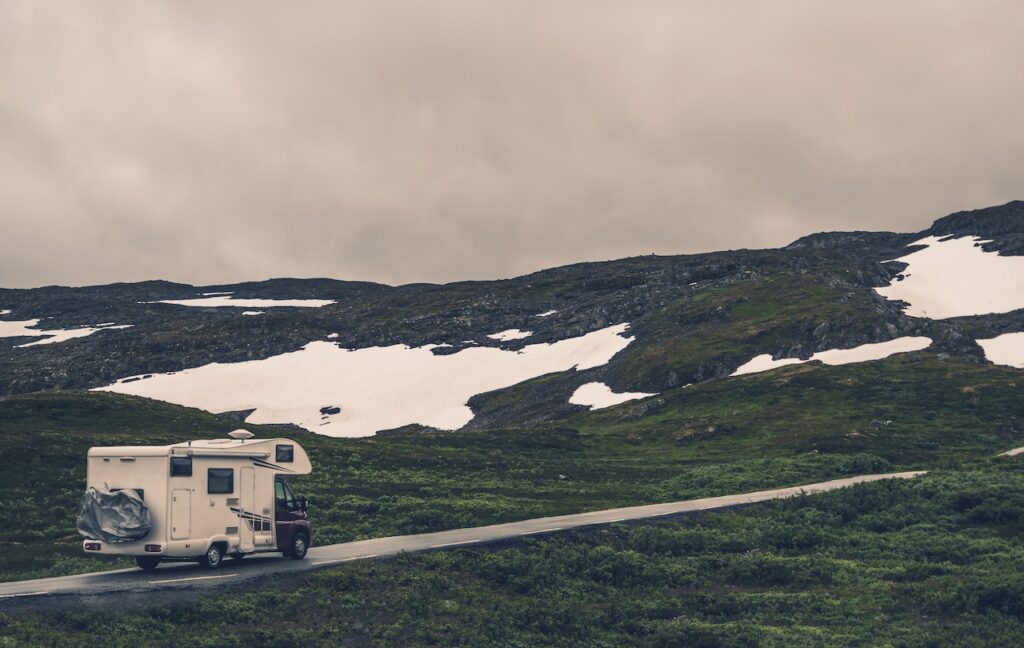Whether your holiday calendar is full of camping trips or you’re getting ready to use long-term RV storage for the winter months, it’s important to take the time to winterize your RV.
You wouldn’t withdraw a couple of thousand dollars in cash and then leave it outside to be ruined by the snow and cold, would you? The same goes for your RV! It’s one of your investments and should be treated as such.
With a little bit of preparation, you can ensure that your RV will be in top shape during your winter trips and when spring comes around.
What Will Happen If I Don’t Winterize?
If you choose not to winterize your RV, you’re taking the risk of damaging the pipes and plumbing. When water freezes, it expands. This can cause cracks in your pipes which will lead to costly repairs.
In addition, any water that is left in your tank can turn into a breeding ground for bacteria. This is especially harmful if you have kids or pets that may be using the RV.
Any leftover bits of food or trash—no matter how small—can attract bugs and rodents. These critters will be looking for a warm place to nest and your RV might just fit the bill. Not only is this icky, but it can also cause serious damage to your RV.
Finally, if you don’t winterize your engine, you run the risk of damaging it. Water can get into the oil and ruin the engine, making it virtually impossible to repair.
5 Tips for Winterizing Your RV
Now that we’ve talked about some of the risks associated with not winterizing your RV, let’s go over some tips on how you can properly winterize it.
1. Flush the Plumbing System
The first thing you’ll want to do is flush out the entire plumbing system. This includes the fresh water tank, toilet, and any other lines that might have water in them.
To do this, simply open all of the faucets and drains until the water runs completely clear. Once it’s finished draining, close all of the valves and faucets.
2. Add the Antifreeze
Once the plumbing system has been flushed, you’ll want to make sure that the pipes don’t freeze. The best way to do this is by using RV-specific antifreeze.
To use it, simply add the antifreeze to your freshwater tanks and then run it through the lines. This will help to ensure that your pipes don’t freeze and burst during the winter months.
3. Pest Control
Another important tip for winterizing your RV is to make sure you do some pest control. This is especially important if you’re planning on storing your RV for an extended period of time.
You can spray the RV down with a pesticide or even set out traps to help keep the critters at bay. Just make sure that you remove any food or trash before you do so.
4. Make Sure the Engine is Stabilized
If you’re going to be storing your RV for an extended period of time, it’s important to make sure the engine is stabilized. This will help to prevent any damage from occurring while it’s not in use.
One way to do this is to add a fuel stabilizer to your gas tank. This will help to keep the engine in good working condition and prevent any corrosion from taking place.
5. Winterize the Tires
Finally, you’ll want to winterize the tires on your RV. This can be done by simply inflating them to the proper pressure. This will help to prevent any flats from occurring and will also make it easier to move your RV around if necessary.
How Much Will it Cost to Winterize my RV?
The cost of winterizing your RV will vary depending on the size and type of RV you have. However, it’s generally a fairly inexpensive process.
For most people, the biggest expense will be antifreeze. A gallon or two should be enough to get the job done. Beyond that, you might need to buy a few other supplies like a tire pressure gauge and some fuel stabilizer.
All in all, the cost of winterizing your RV should be around $100-$150. This is a small price to pay to keep your RV in good working condition and prevent any costly repairs down the road.
Find a Long-term RV Storage Solution That Cares As Much About Your RV As You Do
While you’re busy planning for your summer adventures, Good Shepherd RV Park & Storage can take care of your long-term RV storage for winter. We offer covered and uncovered storage and a wide range of amenities to make your life easier, like enclosed mini storage, a dog park, and a laundry facility. Contact us today to learn more!



